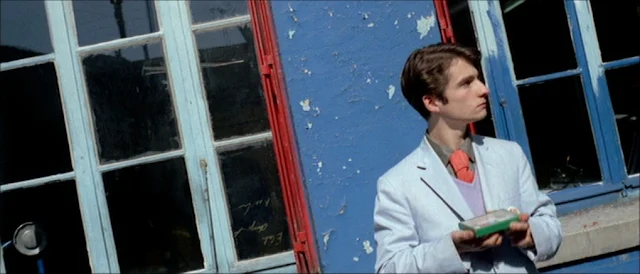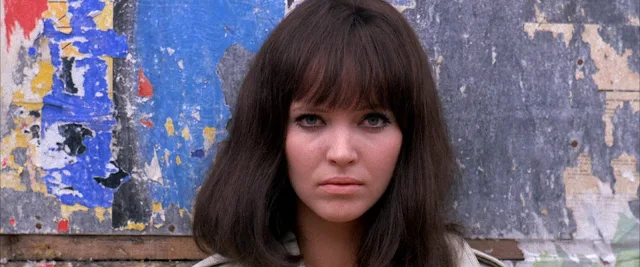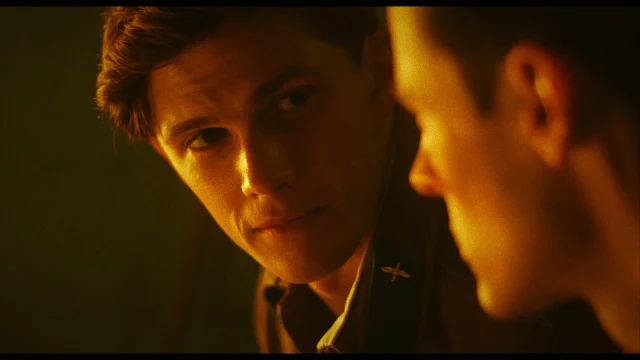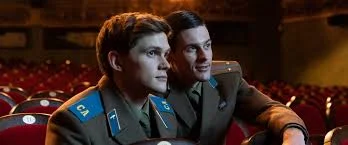Cast: Romy Schneider, Yves Montand, Sami Frey, Bernard Le Coq, Eva Maria Meineke, Henri-Jacques Huet, Isabelle Huppert. Screenplay: Jean-Loup Dabadie, Claude Sautet, Claude Néron. Cinematography: Jean Boffety. Production design: Pierre Guffroy. Film editing: Jacqueline Tiédot. Music: Philippe Sarde.
There’s a reason why there’s no English word or phrase for ménage à trois. It may be a concept foreign to Anglo-American culture. Instead, we have “eternal triangle,” which implies hostility rather than affection. To be sure, César and Rosalie contains a considerable amount of hostility among César (Yves Montand), David (Sami Frey), and Rosalie (Romy Schneider), but in the end we are almost persuaded that they love one another, and even that they might make it work. Everything pivots around the woman, of course, very fetchingly played by Schneider. Rosalie has had many lovers, but perhaps none so different from each other as the bullish self-made man César and the reserved and sophisticated cartoon artist David. And yet they are both men, and they display common characteristics when it comes to women. When César has a poker night with his buddies, Rosalie is ordered about, fetching ice and beer and vodka for the guys. She flees this smoky gathering for David’s, where he’s meeting with other men about a publishing product. And sure enough, it’s not long before one of the men asks her to make coffee. David, to his credit, comes to her aid, and César, upset by her sudden disappearance, spends the evening searching for her. And so begins a series of oscillations between the two men until finally Rosalie reaches her limit, realizing that she can’t live peacefully with either of them – or with both of them. Or can she? The end leaves that question deliciously unresolved. This is a film with a great deal of charm and insight. Montand gives one of his best performances as the cigar-chomping, blustering guy who made his fortune in the scrap metal business, but Schneider and Frey in their quieter roles are equally fine.





















































